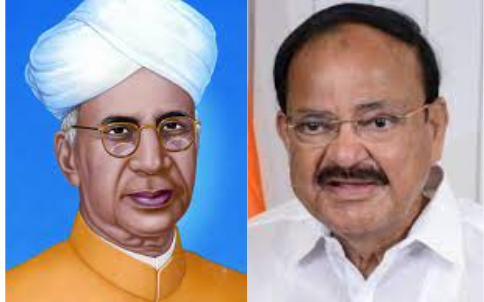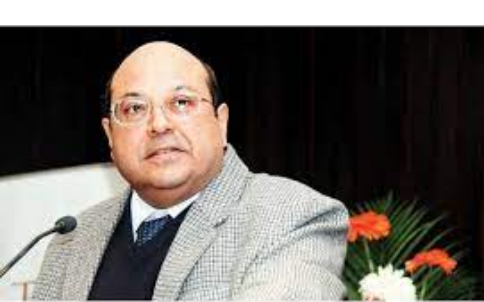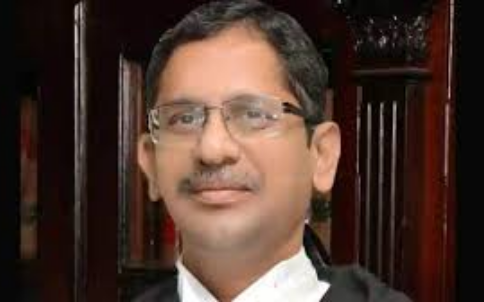Chief Justice of India, justice N V Ramana, should be thanked for his bold and timely reminding the nation with his independence day address at the Bar council of India on August 25 . Contrary to the way his speech was presented by some news media as critical of the Govt. he rather echoed not only what many are concerned about the functioning of the parliament and Assemblies but what the Vice President of India and the Prime minister them self have said recently. The Chief Justice has hinted, like some of his illustrious predecessors years ago, some of the issues confronting the country and the sorry state of affairs in the way the laws are being passed in the legislatures.
One of the issues the Chief Justice has reminded is lack of a debate in public policy making even in the parliament and Assemblies. No one has talked before justice Ramana the perils of passing of Bills without a discussion and when the House is in a din. He explained that it is resulting in ambiguities about laws and causing increasing litigations and inconvenience to the people. The fact nearly half of pending litigations in courts in the country involve the Govts. must be bothering him naturally. And this in turn results in tardy implementation of public programmes is also an issue he pointed out. He also hinted that this situation is perhaps because of the kind of composition of people’s representatives in the parliament and Assemblies. The Chief Justice also reminded in that address about cost of judicial services and that legal fraternity should be concerned about and do something about. He called for “spirit of public duty” on their part. And to “educate the public about the work put in by judges.” Has anyone called similarly about the work of MPs and ML As?

What Dr Radhakrishnan said?
Dr. Sarvepalli Radhakrishnan, India’s first Vice President, emphasised more than 60 years ago that parliament is “not only a legislative but a deliberative body” In fact, he advocated better balance between legislations and deliberations. It was his foresight after presiding over the Rajya Sabha and before he was elected as the second President of the Republic. It is a coincidence that the Present Vice president of India, Venkaiah Naidu, hailing from the same region of the country as the great philosopher of India, Dr. Sarvepalli Radhakrishnan, has been reminding about such a balance. Based on his own insights after presiding over the Rajya Sabha for over two years, Venkaiah Naidu was frank when he shared with the public the kind of interest members of parliament were taking in the proceedings of the House and how disappointing is their attendance at the meetings of parliamentary committees.
It was a reminder
The Chief Justice’s remarks on the Independent Day should also not be viewed as judicial activism but a reminder of a unique feature inherent in our constitution that is the doctrine of “checks and balances” between the pillars of the state that is the legislature, the judiciary and the Executive. The Supreme Court’s wondering why the govt. introduced tribunals reforms bill, for example, with provisions already invalidated and struck down by courts, could similarly be described by some as “legislative overriding the judiciary.” Both should be viewed as healthy signs in a democracy.
In my forthcoming book next month, Rejuvenating the Republic, I discussed these dilemmas including how the bills are pushed through even without deliberations within and public awareness about such initiatives outside and how all this is effecting the trajectory of development, democracy and governance and causing ambiguities in public perceptions. My other book released last month, The Third Eye of Governance, discussed and explained where the govt. goes ahead in the absence of research, analysis and sharing of these trends in policy making process. Such a trend signals decline in the representative character of elected representatives of people and decline in the implementation of programmes and the why the country is compelled with so many amendments, litigations, PILs and grievances galore.

Two must read books by Nariman
The retirement last week of an illustrious judge Rohinton Fali Nariman is a loss to not just the Supreme Court but to all those with hopes on the judiciary of the country. As the Chief Justice aptly described at the farewell to Nariman, it is “losing one of the lions that guarded the judicial institution.” His recent judgment striking down the amendment to IT Act is a reminder of his concerns and courage. He disposed of 13565 cases during his 7 year term at the Supreme Court. He left an indelible mark on the jurisprudence of the country. Greatly respected and inspiring, Nariman is an acclaimed brilliant jurist who has set examples for reasoned judgments. He could be credited for educating many about objective and analytical outlook. I had the privilege of knowing his father, another brilliant lawyer Fali Nariman. Both have expressed about creeping authoritarianism and majoritarianism. His books, Discordant Notes and The Voice of Dissent in the Last court of Last Resort, are fascinating account of heights the judiciary has witnessed over the decades in upholding democratic culture.
………….
Dr. N. Bhaskara rao is New Delhi based public policy analyst of over 50 years standing.




